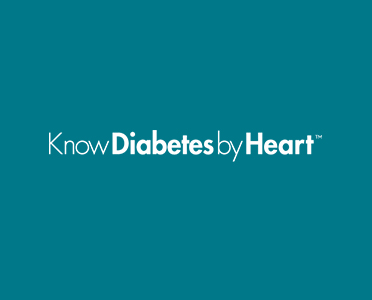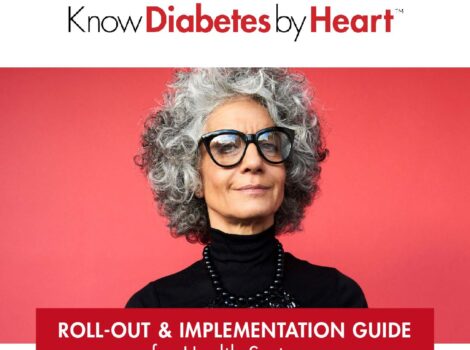Clear All Filters
Webinar
2023 Target: Type 2 Diabetes℠ Outpatient Recognition Updates Live Webinar and Q&A Session
Join Know Diabetes by Heart™ for a presentation on the Standards of Medical Care in Diabetes—2022 (Standards of Care) from the American Diabetes Association® (ADA).
Webinar
Target: Type 2 Diabetes℠ Honor Roll Updates in Get With The Guidelines®-CAD
Join Know Diabetes by Heart™ for a presentation on the Standards of Medical Care in Diabetes—2022 (Standards of Care) from the American Diabetes Association® (ADA).
Webinar
2021 Shared Learning Meetings Kickoff Meeting
On February 15, 2021 the American Diabetes Association (ADA) launched its inaugural Know Diabetes by Heart/Diabetes INSIDE Shared Learning session to collaborating health care systems partners. In this kick-off presentation, Greg Liptak and the ADA’s Dr. Robert Gabbay provided welcoming remarks and stressed the importance of getting the collaborative health care systems together to learn from and work with each other to combat the diabetes epidemic. Dr. Furman presented population level data from two of the collaborative health care systems showcasing trends and gaps in diabetes and cardiovascular disease management in Greater Philadelphia.
Webinar
The Journey of SGLT2i at TJUH
In this Shared Learning session, speakers from Cardiology, Endocrinology and Pharmacy at Jefferson Health presented their quality improvement (QI) project focused on the uptake and usage of SGLT2i medications in patients with diabetes and cardiovascular disease. The speakers presented interim updates and results of the QI interventions implemented to date along with the challenges, barriers to usage, successes and next steps for the QI project.
Webinar
Hackensack University Medical Center Shared Learning QI Update
In this Shared Learning session, Dr. Colette Knight presented an overview of diabetes and cardiovascular patients at Hackensack University Medical Center (HUMC), updates on HUMC’s quality improvement (QI) project on the use of SGLT2i and GLP-RA in patients with atherosclerotic cardiovascular disease (ASCVD) or heart failure, challenges to implementation and execution of the QI project and next steps.
Webinar
Investigating Patient Perceptions of Factors That May Optimize Diabetes Self-Management
In this Shared Learning session, Dr. Daniel Rubin, Dr. Sarah Bass and Dr. Deborah Swavely presented interim results on a qualitative survey they are conducting to help identify the facilitators of and barriers to optimal diabetes self-management in adults with type 2 diabetes who live in the Temple University Hospital service area.
Webinar
An Interprofessional Approach Health Coach Model to Reduce the Risk of Coronary Events in Diabetic Patients
In this Shared Learning session, speakers from the interdisciplinary quality improvement (QI) team at Jefferson Internal Medicine presented their QI project focused on reducing the risk of coronary events in patients with diabetes. The speakers presented interim updates and results of the QI interventions implemented to date along with the challenges, solutions, successes and next steps for the QI project.
Webinar
Get With The Guidelines® Update – What’s New…What’s Coming!
View this webinar to learn about the Target: Type 2 DiabetesSM Honor Roll recognition program, and updates to the Get With The Guidelines (GWTG) Stroke and Heart Failure modules. Distinguished speaker Dr. Gregg C. Fonarow, Eliot Corday Professor of Cardiovascular Medicine and Science, Interim Chief; UCLA Division of Cardiology, Director, Ahmanson-UCLA Cardiomyopathy Center; Co-Direct, UCLA Preventative Cardiology Program David Geffen School of Medicine, UCLA will share the science behind the latest updates, including antihyperglycemic medications with proven CVD benefit.
Clinical Tools
KDBH Roll-Out and Implementation Guide
Roll-Out and Implementation Guide for Health Systems: Putting into place a comprehensive initiative to reduce heart attacks, heart failure and stroke among people living with type 2 diabetes.






